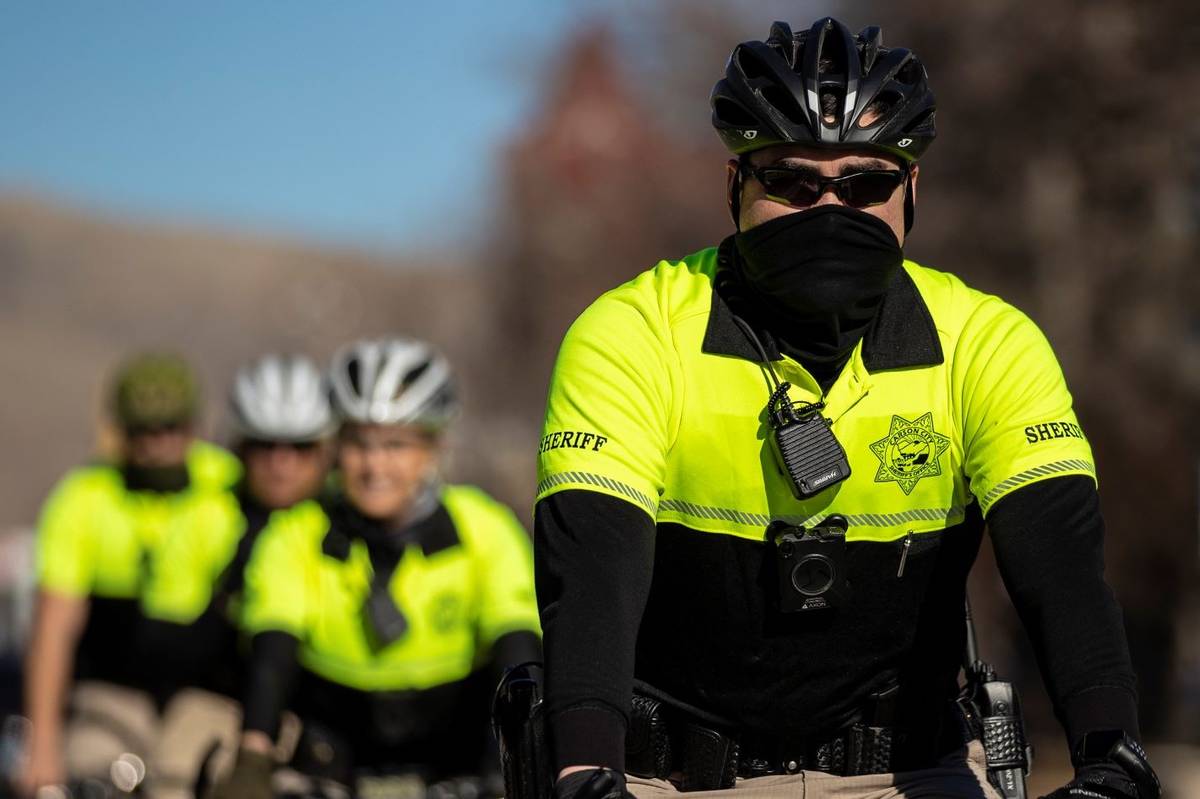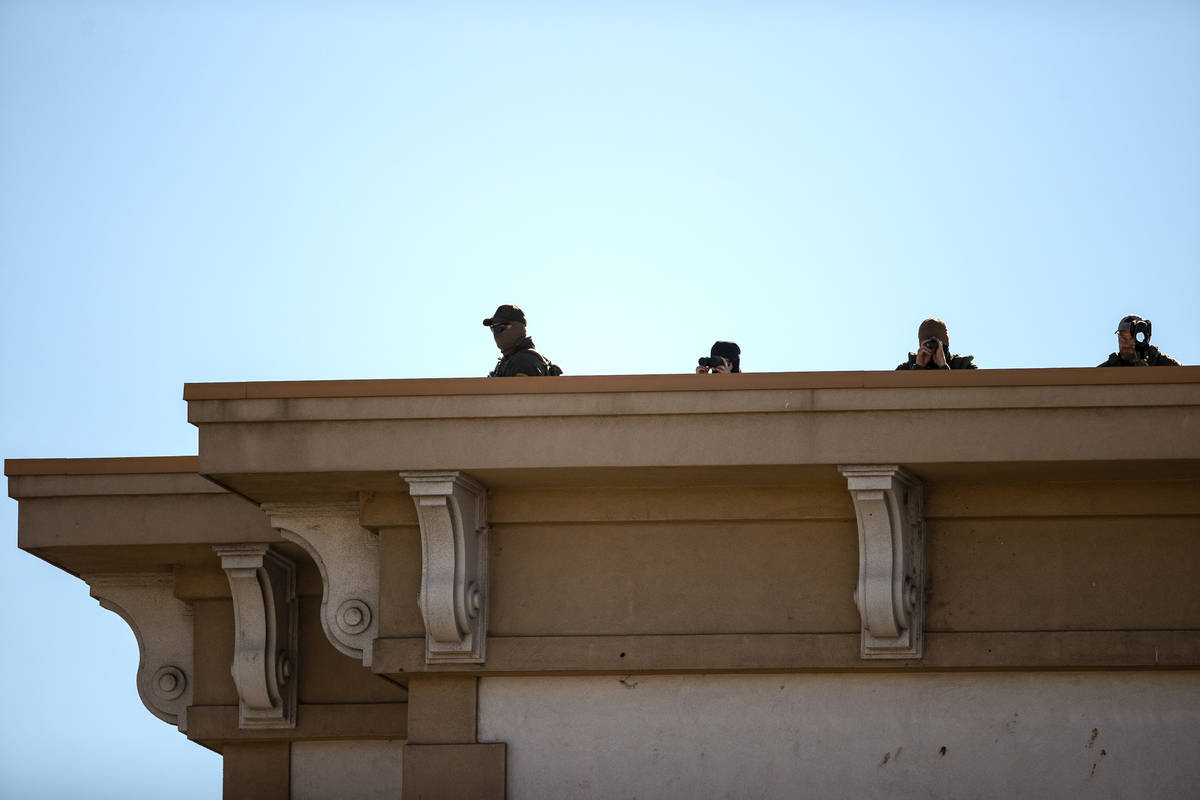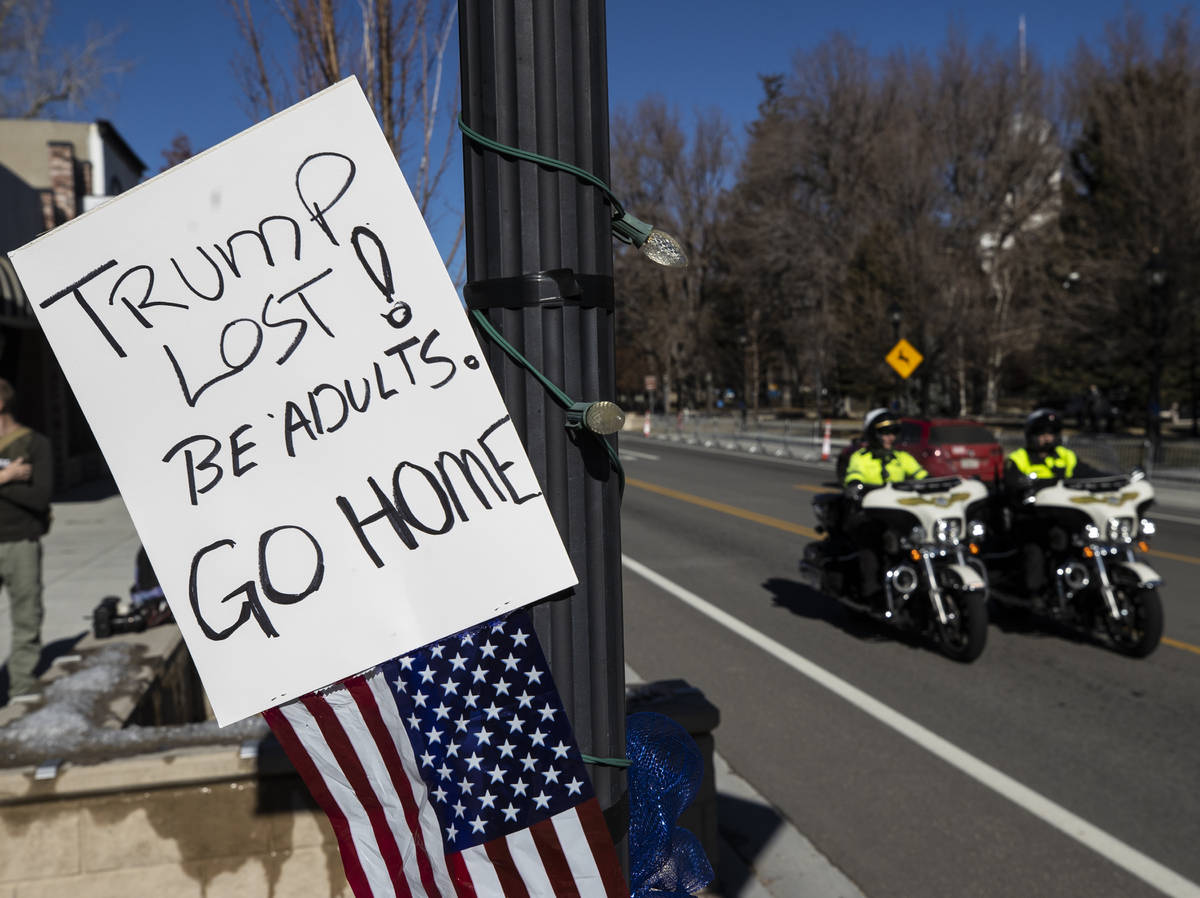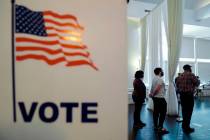Nevada bills limit protesting rights, increase penalties for rioters
Two bills are threatening to change the way protesting is conducted in Nevada and although sponsors say they are targeted only at violent protesters, local activists fear the repercussions.
Assembly Bill 168 proposes that anyone who assaults a police officer during a riot will be charged with a felony, instead of a misdemeanor under current law. The bill would also make it a crime to give out “material supplies” to people who assemble for a riot, and grant immunity to drivers who injure or kill a protester in a roadway, according to the bill’s text.
“Americans were heartbroken as we watched our cities burn last summer and Portland and Seattle almost all year long,” said Assembly Minority Leader Robin Titus, R-Wellington, a sponsor of the bill, in a statement. “Pallets of bricks being dropped off prior to demonstrations was particularly concerning to me. I signed on to AB168 to help stop the revolving door of agitators hiding behind legitimate demonstrations and continuing to destroy neighborhoods and businesses with impunity.”
Sen. Keith Pickard, R-Henderson, a joint sponsor of the bill, said society has trusted police to define when a protest turns into a riot and at that point, demonstrators choosing to remain at the scene have “assumed the risk of whatever comes next.” Pickard said he believes the bill does not target any specific group.
“Our free speech rights end when we put our hands on someone and damage something,” Pickard said. “We should be supportive of peaceful protests but need to respond in a substantive way to those that would do violence … We need to do better at making it clear that we’re not going to tolerate violence. This raises the threshold and disincentives further tendency to violence.”
The bill is being talked about in local activist groups jointly with Senate Bill 242, which would ban protesting in residential neighborhoods if the protesters are targeting a specific home, despite standing on public property. The bill cites “a significant governmental interest in protecting the sanctity, well-being, tranquility and privacy of the home.”
SB 242 was sponsored by Sen. Carrie Buck, R-Henderson, and one local group that protests weekly in Henderson said it was taken aback by the two bills.
Activists call it ‘a slap in the face’
More Than a Hashtag was formed by Las Vegas women who protest police violence. The group has been standing on the sidewalk weekly outside the homes of the five officers involved in the shooting of Jorge Gomez on June 1 after a Black Lives Matter protest downtown.
Four of the five officers live in Henderson and group organizer Desiree Smith said they stand on the sidewalk during their peaceful protests, which she hopes will educate neighbors about the officers. Smith said protests are a last resort when legislation and societal norms have failed a group of people.
“We don’t say pig. We keep it very to the point because obviously this case is still open,” she said. “We get out and push our message.”
Clark County is expected to host a public fact-finding review regarding Gomez’ death on April 16. Fact-findings reviews are held when the district attorney’s office decides not to press charges in a fatal police shooting and closes the case.
More Than a Hashtag organizer Lynna Radney said the group is working this session with groups such as the NAACP and Mi Familia Vota on various bills in Carson City. She said legislation such as AB 168 and SB 242 make her think her senators and Assembly members aren’t representing her interests.
“Are we even safe when we are practicing our rights?” she asked.
Problems with legislation
North Las Vegas defense attorney Jonathan MacArthur called the language vague because AB 168 gives police the power to define a riot, and SB 242 allows a residential sidewalk to be occasionally redefined as a private space.
“In the backdrop of the (former police officer Derek) Chauvin trial in Minnesota—and in an environment where the nation needs more accountability from police for their excessive uses of force — these bills seek to give more discretion to punish the people complaining to the very agencies being protested,” MacArthur said. “A place is either public, or it is not. Spaces are not public for the ‘right people’ but private against ‘undesirables’.”
MacArthur called the bills authoritarian and implicitly racist given that they were introduced only months after a summer of protests against violent police tactics.
“They were sponsored as a direct response to communities of color protesting in the wake of the deaths of victims like George Floyd, Breonna Taylor, and Las Vegas’ own Jorge Gomez, and not as a response to the men that staged an armed standoff with the Bundys over BLM land in 2014,” he said. “I guess which BLM you oppose matters.”
Titus denied claims of racism. “Americans are exhausted with charges that everything is racist,” she said. She insisted her bill is directed at people who come to a peaceful demonstration intending violence.
MacArthur said the bills may not be constitutional given their infringement on First Amendment rights to assembly, but they show that senators and Assembly members support police and drivers who injure protesters, but not protesting itself.
“If the message you’re representing is not one preferred by establishment, you’re now at greater risk of criminal liability?” he said. “We would look at other countries and say ‘what is wrong with them?’ if we read that.”
Both houses of the Legislature are currently controlled by Democrats, who have made police reform a big part of their 2021 agenda. The protest bills also face a Friday deadline to pass out of the committee to which they were referred, or they are considered dead for the rest of the 2021 session.
Contact Sabrina Schnur at sschnur@reviewjournal.com or 702-383-0278. Follow @sabrina_schnur on Twitter.





















